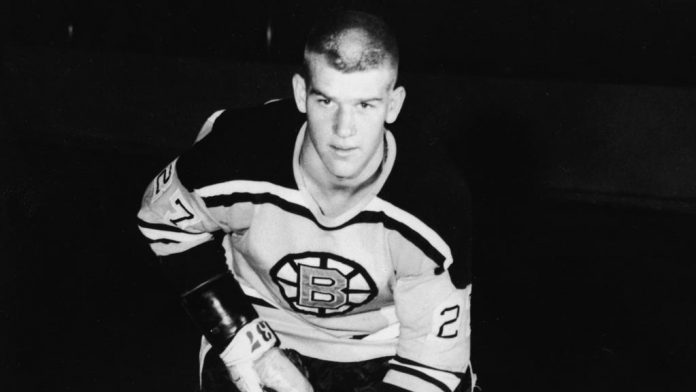
September 3 NHL History
1966: The NHL begins a new era when 18-year-old defenseman Bobby Orr signs a two-year contract with the Boston Bruins.
The Bruins, who haven’t qualified for the Stanley Cup Playoffs since 1959, spend months haggling with Orr and his agent, Alan Eagleson, before coming to terms on a contract that pays him $70,000, plus a signing bonus. Orr has been property of the Bruins since age 14, when he signs a contract to play Junior A hockey with the Boston-sponsored Oshawa Generals of the Ontario Hockey League.
Orr turns out to be more than worth the money. He wins the Calder Trophy as the NHL’s top rookie in 1967, the Norris Trophy as the top defenseman in eight consecutive seasons, and helps the Bruins win the Stanley Cup in 1970 and 1972.
1987: The Toronto Maple Leafs and Chicago Blackhawks make one of the biggest trades of the 1980s. Toronto sends its captain, forward Rick Vaive, as well as forward Steve Thomas and defenseman Bob McGill to Chicago for forwards Ed Olczyk and Al Secord. Vaive scores 43 goals in his first season with Chicago and Thomas becomes a 40-goal scorer in his third season with the Blackhawks. Olczyk scores 112 goals in three full seasons with Toronto, but Secord, a 54-goal scorer in 1982-83, is limited to 15 goals in 1987-88 and is traded midway through the following season.
1991: The New York Rangers sign forward Adam Graves, a restricted free agent, after he spends the previous two seasons with the Edmonton Oilers. Graves improves from seven goals in 76 games for the Oilers in 1990-91 to 26 in his first season with the Rangers; he sets a team record with 52 in 1993-94 to help New York win the Stanley Cup for the first time since 1940.
1991: An arbitrator awards defenseman Scott Stevens to the New Jersey Devils as compensation for the St. Louis Blues signing of 22-year-old restricted free agent forward Brendan Shanahan. Under the terms of the collective bargaining agreement at the time, the Devils are entitled to compensation; they ask for Stevens while the Blues offer center Rod Brind’Amour, goaltender Curtis Joseph and two draft picks.
The ruling comes one year after the Blues give up five first-round picks to sign Stevens after he spends his first eight NHL seasons with the Washington Capitals.
The decision is a turning point for the Devils. Stevens helps them win the Stanley Cup in 1995, 2000 and 2003; he wins the Conn Smythe Trophy as playoff MVP in 2000.





